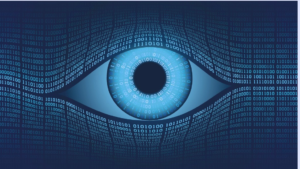The Dark Web, a hidden corner of the internet, has piqued the interest of government agencies worldwide. With its reputation as a hub for illicit activities, the question arises: How involved are state actors in monitoring Dark Web activities?
This article investigates the extent of government surveillance on the Dark Web, delves into surveillance techniques employed, analyzes the privacy implications, and explores the ongoing debate surrounding surveillance versus user anonymity.
To illustrate these concepts, we will examine notable examples of government involvement in Dark Web monitoring.
Government Surveillance and Dark Web Monitoring
Government agencies are strongly interested in monitoring the Dark Web because of its affiliation with illicit activities, including drug trafficking, weapons trade, and child exploitation. While the specifics of government surveillance techniques are often shrouded in secrecy, agencies are widely believed to employ various methods to monitor Dark Web activities.

One common surveillance technique is deploying specialized software, often called “sniffer” or “crawler” tools, which scan the Dark Web for specific keywords, websites, or communication patterns. These tools enable government agencies to identify potential threats and track down individuals involved in illegal activities.
Another approach involves infiltrating Dark Web communities through undercover operatives or informants. These operatives may pose as regular users to gather intelligence, monitor discussions, and identify high-value targets for investigation.
Implications for Privacy
The increasing involvement of government agencies in Dark Web surveillance raises concerns about privacy and civil liberties. While such surveillance intends to combat illegal activities, it can inadvertently impact the privacy of individuals who use the Dark Web for legitimate purposes, such as whistleblowing or evading censorship in repressive regimes.
The monitoring of Dark Web activities challenges the notion of online anonymity. Users seeking privacy on the Dark Web may feel exposed and vulnerable to state surveillance. This situation raises ethical and legal questions about the balance between security and individual privacy rights.
Debate: Surveillance vs. User Anonymity The involvement of government agencies in Dark Web surveillance has ignited a heated debate between surveillance proponents and advocates for user anonymity. Supporters argue that surveillance is necessary to combat criminal activities and protect national security. They claim that monitoring the Dark Web enables authorities to track down criminals, dismantle criminal networks, and prevent potential harm to individuals and society.
On the other hand, advocates for user anonymity emphasize the importance of privacy and civil liberties. They argue that surveillance undermines personal freedoms and can lead to the abuse of power. They raise concerns about potential mission creep, where surveillance efforts extend beyond the scope of targeting criminals, thereby intruding into the lives of law-abiding citizens.
Examples of Government Involvement
1. Operation Onymous
In 2014, law enforcement agencies, including the FBI and Europol, launched Operation Onymous. The operation targeted illegal activities on the Dark Web, leading to the takedown of numerous illicit marketplaces, such as Silk Road 2.0 and Hydra. This example demonstrates international collaboration in combating Dark Web criminality.
2. AlphaBay Shutdown
In 2017, AlphaBay, one of the largest Dark Web marketplaces, was shut down by law enforcement agencies from various countries. The investigation involved cooperation between agencies, including the FBI and Interpol. The takedown of AlphaBay illustrated the concerted efforts to dismantle illicit infrastructures operating on the Dark Web.
Conclusion
Government surveillance of the Dark Web is a complex and evolving subject. While the involvement of state actors in monitoring Dark Web activities aims to combat illegal activities, it raises concerns about privacy and the balance between surveillance and user anonymity.
The examples of Operation Onymous and the AlphaBay takedown highlight the international collaboration among law enforcement agencies.
As the Dark Web continues to evolve, the debate surrounding government surveillance will persist, demanding careful consideration of privacy rights and effective approaches to combating criminality while respecting individual freedoms.